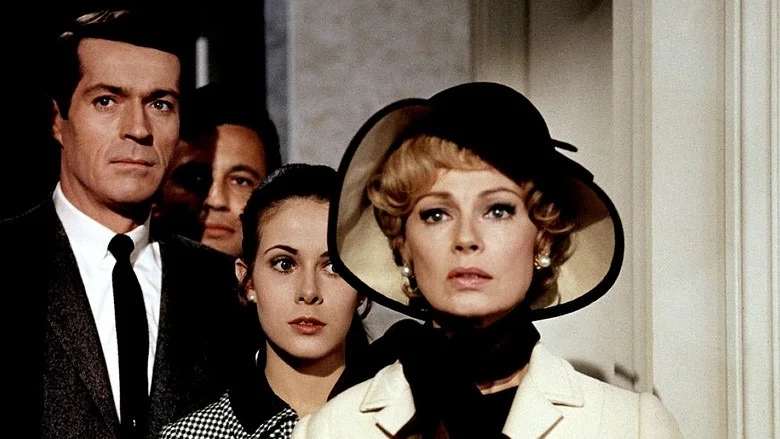Beginner’s Guide to Alfred Hitchcock: Downhill (1927)
As I head into the early career of Alfred Hitchcock, I’m seeing a lot of films I had never seen before, and some I hadn’t even heard of. The 1927 silent film Downhill (in the U.S, titled When Boys Leave Home) is one such film. I found this film on FilmStruck, and the story looked interesting. Regular readers of this column are aware of my general unease with silent cinema. And admittedly even this film was hard for me to get though, even though the general concept has potential. As someone who often went back to similar themes, I wonder why Hitchcock never revisited the premise of Downhill. I can imagine Farley Granger from Rope and Strangers on a Train could make this story more compelling and unsettling.
Silent film star and composer Ivor Novello co-wrote Downhill as a play with Constance Collier. Novello also stars in the film as Roddy, a teenage schoolboy devoted to his best friend Tim (Robin Irvins). The boys are extremely loyal to each other, though they begin to see the same waitress Mabel (Annette Benson). When Mabel falls pregnant, she names Roddy as the father—even though Tim is actually the father. Roddy decides to admit to the paternity. Tim would lose a scholarship to Oxford if he is removed from their boarding school. Roddy is expelled from school and thrown out of his home. And that’s when Roddy's previously charmed life goes—you guessed it—downhill.
First things first, this movie is really misogynistic. Hitchcock films like Marnie, Vertigo, and Frenzy have been criticized for their poor treatment of women, but at least those presented interesting things happening to women and compelling female characters. In Downhill, Mabel lies about the father of her child seemingly on a whim. I thought maybe she was doing it out of love for Tim and some protective instinct for his precarious situation. But the film hardly gives her any motivation or inner life. Is she scared that Tim couldn’t provide for her? The film hardly gives her any characterization other than lower class harlot who ruins a boy’s life. The other major woman in the film is Julia (Isabel Jeans), an actress that Roddy takes up with. Roddy receives money in his inheritance, so he’s able to live off that with Julia. But when the money runs out, Julia is gone. Again, this woman is just an empty shell, a plot device that cruelly humiliates poor Roddy.
On an artistic level, Downhill does not fare much better. There are some interesting shots, like the scene with Mabel walking menacingly towards the two boys or Roddy going down on an escalator (he’s going downhill, you see). The best part of the film is the title cards (“the world of youth,” “the world of make-believe”), which Hitchcock uses for ironic juxtaposition. Hitchcock isn’t being subtle, of course. Into the sound era, Hitchcock would figure out the way to balance his heavy-handed imagery with rich themes, complex characters, and dry humor. In some of these early films, however, the obvious lands bluntly because Hitchcock had not mastered the art form yet. The influence of German expressionism is creeping in, but there isn’t any passion or delight coming from behind the camera.
Ivor Novello also starred in Hitchcock’s seminal silent film The Lodger: A Story of the London Fog. That film was more inventive and in general more interesting than Downhill. Novello is putting in a good effort here, especially since he co-wrote the source play. His boyish looks and innocent demeanor make him a believable hero, even though he isn’t as convincing as a school-age young adult (the actor was 34 when the film came out). The rest of the cast doesn’t do much, though Isabel Jeans at least has some fun as a gold-digger.
Downhill is not a movie I’d recommend to anyone but the most devoted of Hitchcock completists. Whatever interesting filmmaking techniques Hitchcock employs are found in other, better films. There aren’t a lot of fun Hitchcock tropes to point out from here. Brody is a “wrong man,” in that he was punished for something he did not do. I would have loved to see what Hitchcock could have done with the story in the sound era.















